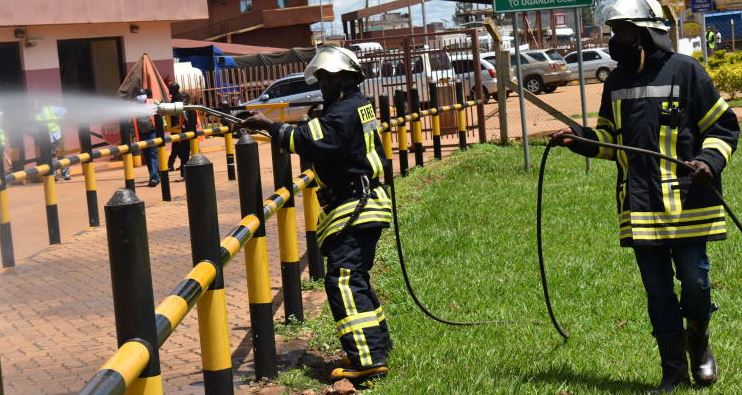
Porous borders are the latest headache for the government in its fight against Covid-19 even as the country registered 14 new cases yesterday.
This is happening as the government seeks to import 24,000 test kits by the end of next week to ramp up targeted testing.
Most of these tests will be concentrated in Nairobi's Eastleigh estate and Old Town in Mombasa, the two areas which are under lockdown since they are deemed Covid-19's hotspots.
The government is particularly concerned with the borders between Kenya and Tanzania and Kenya and Somalia.
Cases in the two countries have been on the rise, with some of the patients in Kenya linked to recent travel to Somalia.
This happened despite Kenya closing all its borders in order to control infections.
Health Chief Administrative Secretary Dr Rashid Aman, while giving an update on the disease yesterday, said it is impossible for the government to be present at every inch of the border.
"The porous borders have always been a challenge. It is impossible for the government to monitor every mile of the border, but all border points and panya routes are known," he said.
Sneaking in and out
Apart from Somalia and Tanzania, some of the cases in Kenya are linked to Uganda.
The CAS noted that even with the lockdown in the two sections in Nairobi and Mombasa, some people still sneak in and out, and that is derailing the fight against the virus.
"In certain counties, if you were to travel there from Nairobi in less than two hours you will be in quarantine," he said.
Kenya's cases are 621. The recoveries are also up by five to 202, which roughly translates to about one third of those who have tested positive for coronavirus.
Of the 621, only 34 are health workers. "So far, they have done well and we have no mortality," Health Director General Dr Patrick Amoth said of the health workers.
He added that of the 922 tests conducted between Thursday and yesterday, none was done in Eastleigh, which explains why there was no case reported from the area.
Dr Amoth said there were no test kits for the automated testing platform.
"Today, we expect 8,064 test kits and another 16,000 by next Wednesday. If these come, we will scale up our targeted testing," he said.
 The Standard Group Plc is a multi-media organization with investments in media
platforms spanning newspaper print
operations, television, radio broadcasting, digital and online services. The
Standard Group is recognized as a
leading multi-media house in Kenya with a key influence in matters of national
and international interest.
The Standard Group Plc is a multi-media organization with investments in media
platforms spanning newspaper print
operations, television, radio broadcasting, digital and online services. The
Standard Group is recognized as a
leading multi-media house in Kenya with a key influence in matters of national
and international interest.











